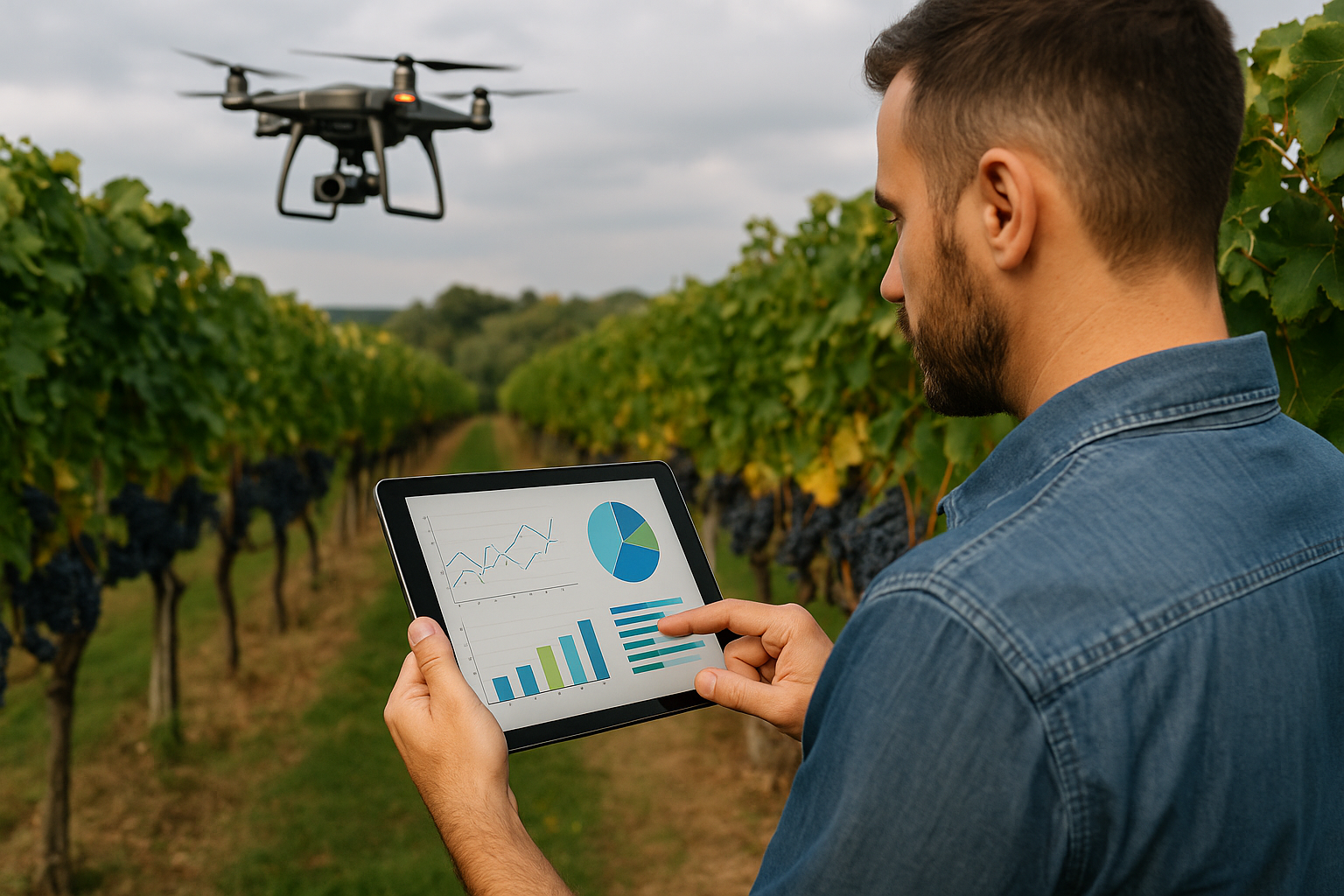How technology and tradition can coexist in agroecological practices
The findings highlight that the integration of technology does not inherently conflict with ecological principles. Instead, when implemented within a socially and environmentally conscious framework, it can strengthen sustainability while allowing farmers to meet certification standards and maintain their biodynamic identity.

The increasing use of digital technologies in the agricultural sector is often portrayed as being at odds with ecological farming practices. However, a new study challenges this assumption, revealing how digital tools, when integrated thoughtfully, can strengthen agroecological systems.
Published in Agriculture, the study "Dynamics of Using Digital Technologies in Agroecological Settings: A Case Study Approach" examines the biodynamic vineyard Mulini Di Segalari in Tuscany, Italy, to demonstrate how digitalization can enhance sustainability, restructure social relations, and foster innovation in agroecology.
The research asserts that the future of farming does not lie in choosing between tradition and technology, but in combining both to create sustainable, equitable, and innovative food systems.
How do digital tools support agroecological farming?
Agroecology focuses on farming methods that sustain biodiversity, soil health, and local ecosystems while supporting smallholder autonomy. Traditionally, digital agriculture has been associated with industrial-scale farming, raising concerns about its compatibility with agroecological principles. The study by Meesala and Brunori offers a different perspective. It finds that digital tools, such as drones, sensors, and smart irrigation systems, can actively support ecological management when adapted to the needs of agroecological farms.
At Mulini Di Segalari, digital tools were used to monitor vineyard biodiversity, optimize soil management, and improve pest control with minimal chemical use. These technologies helped reduce resource consumption while enhancing product quality. The research shows that digitalization also extends beyond farming operations to include online platforms that connect the vineyard directly with consumers, boosting transparency and economic resilience.
The findings highlight that the integration of technology does not inherently conflict with ecological principles. Instead, when implemented within a socially and environmentally conscious framework, it can strengthen sustainability while allowing farmers to meet certification standards and maintain their biodynamic identity.
How does digitalization transform social relations and knowledge systems?
The study points out that the adoption of digital technologies is not just a technical shift but a social one. At Mulini Di Segalari, digitalization reconfigured relationships among farmers, workers, technology providers, and local communities. By enabling new forms of collaboration, technology changed how knowledge is created and shared within the farm network.
Digital tools facilitated the co-creation of knowledge between farmers and external actors, including researchers and tech companies. This collaborative approach improved the farm’s capacity to adapt and innovate while maintaining its ecological values. The research highlights that these socio-technical networks were crucial for the successful integration of technology, supporting a participatory model of innovation rather than a top-down, corporate-driven process.
However, the study also cautions against the potential risks of digital dependence. As farms increasingly rely on external technical expertise, new hierarchies can emerge, concentrating power in the hands of technology providers. Without participatory governance, this dependence could undermine farmer autonomy and weaken the agroecological foundation of farming practices.
What are the opportunities and risks for sustainable agriculture?
The case study shows both the opportunities and challenges of using digital technology in agroecology. On one hand, digitalization offers clear benefits: improved efficiency, enhanced ecological monitoring, better market access, and stronger compliance with organic and biodynamic certifications. On the other hand, it introduces new vulnerabilities, such as reliance on external suppliers, the risk of data misuse, and the possibility of corporate control over farming practices.
The authors argue that the success of digitalization in agroecology depends on the context in which it is deployed. Technology should be embedded in socio-technical systems that prioritize collaboration, knowledge sharing, and farmer empowerment. This requires policies that support small-scale farmers, promote open-source solutions, and encourage participatory governance.
The study also outlines that technology adoption must remain sensitive to local contexts. Agroecological farms operate within unique cultural and environmental settings, meaning that digital tools must be adapted rather than imposed. When technology aligns with ecological and social values, it can accelerate the transition toward more sustainable food systems.
A new vision for digitalization in agriculture
The research presents digitalization as a socio-technical process that can either strengthen or undermine sustainability, depending on how it is governed. The case of Mulini Di Segalari shows that when digital tools are integrated into agroecological frameworks, they can catalyze innovation while preserving ecological integrity.
For policymakers, the study offers a clear message: digitalization must be guided by frameworks that empower farmers and protect ecological values. Investments in training, open data, and collaborative networks can help ensure that technology benefits small-scale, sustainable farms. For farmers, the findings demonstrate that digital tools can be allies rather than threats, provided they are used in ways that respect autonomy and local knowledge.
- FIRST PUBLISHED IN:
- Devdiscourse










